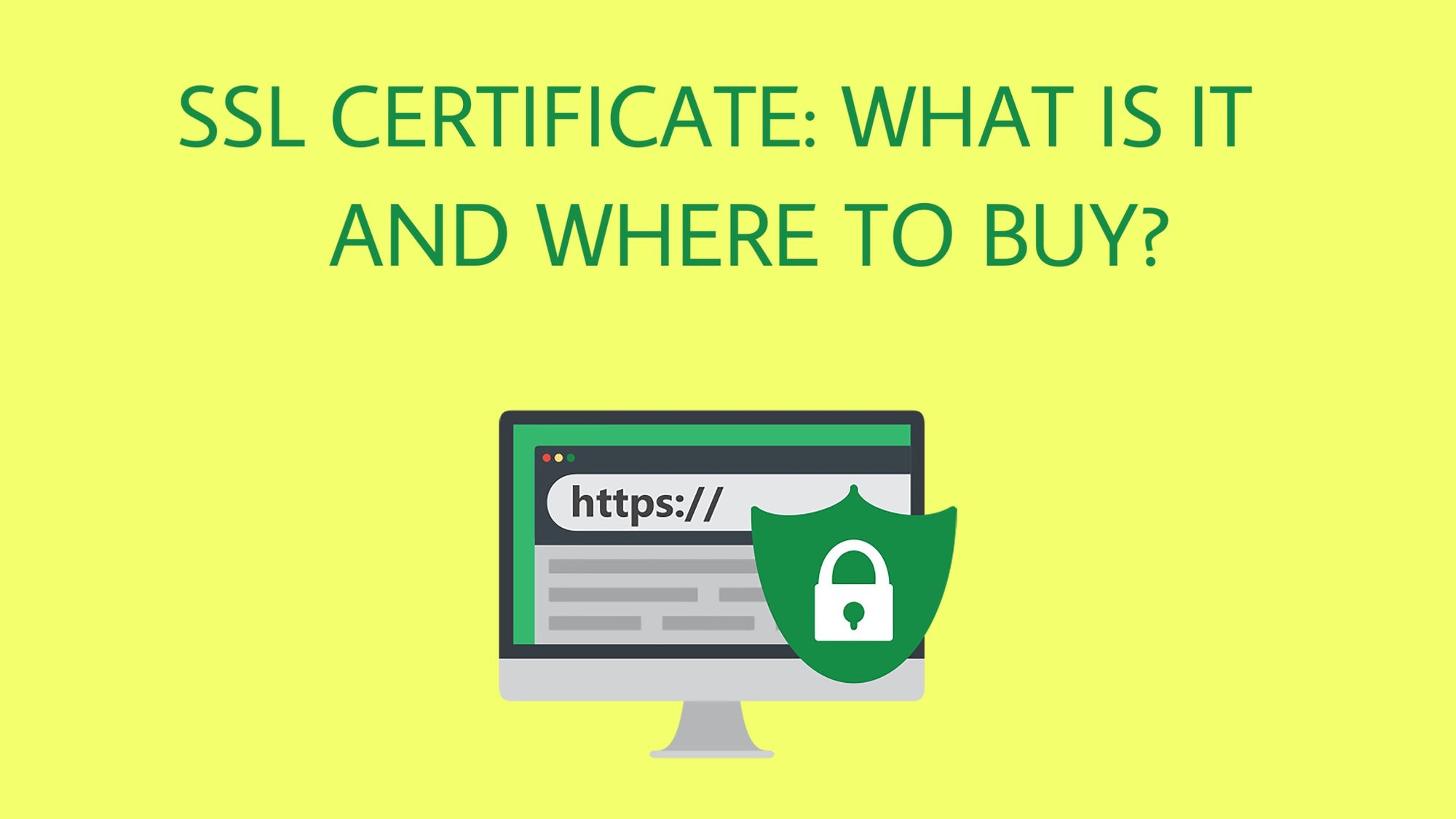SSL Certificate: What Is It, and Where To Buy?

Secure Sockets Layer (SSL) is a security level for protecting transmitted information between a server and a user’s browser. While using SSL, all private data is encrypted and can be decrypted only with a unique key. To use SSL protection, you need to install an SSL certificate on your website.
An SSL certificate helps users confidently enter private information like account login data, or credit card numbers on your website. SSL secures data from third-party services as well as Internet hackers. Note that Google blocks sites, that do not support SSL, and provides protected sites with a better search engine ranking.
Internet users can tell at once whether a website is secured or not. A website with an SSL certificate looks like this:

Near the address bar, you see a little padlock icon, and the URL says HTTPS:// (not HTTP://).
You can click on the padlock icon to learn more about the website and the company.
Where can you get an SSL certificate?
An SSL certificate is necessary for each website. However, the type and the price of the SSL certificate can vary depending on the company's needs.
- Domain Validation Certificate. Proves the domain only. It contains a domain name.
- Company Validation Certificate. Proves the legality of the business, and domain name. It contains company and domain name.
- Extended Validation Certificate. Proves the validation issues mentioned above and notes additional requirements. Note: The extended certificate is the only one that displays the owner’s company name in the green bar.
It is not vital that you purchase an SSL certificate directly from a certificate authority, hosting provider, domain registrar, or authorized re-seller of trusted CAs.
When you choose an SSL, who will issue the certificate is most important. There are many certificate authorities, that provide a different range of SSL certificates. Comodo and Symantec are at the top of the list of trusted certificate authorities.
Among domain registrars, the most common are Namecheap, Godaddy, Gandi.net, Name.com, and 1&1.
Does Short.cm provide SSL?
Yes, Short.cm provides an SSL certificate for short links free of charge. Therefore, all of your short links are secured, and users can easily trust your website. With a free Short.cm SSL certificate, you can save up to $300$ per year.
To activate HTTPS:// links, go to the “Domain settings” tab and tick “HTTPS links.”
If you run into any obstacles, feel free to contact Short.cm support.
UPDATE: We are now generating and renewing SSL certificates automatically, once the domain is fully propagated, you don't need to do anything.

